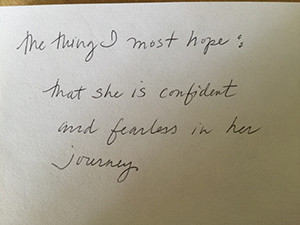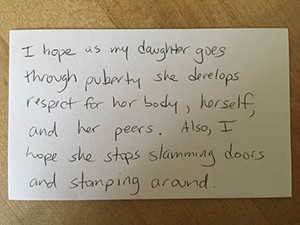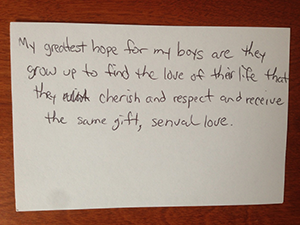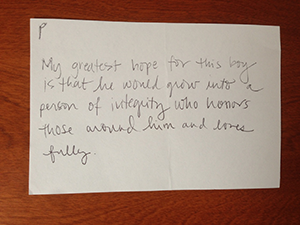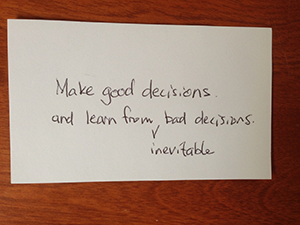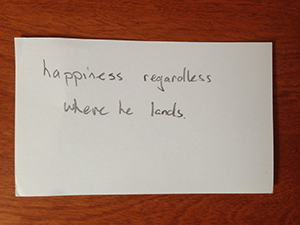FOR GIRLS

Who should sign up?
- Recommended for Girls Ages 10-12 and a Parent or Trusted Adult
Length of program?
- This is a two night, two part class. Each session lasts two hours with a break in the middle for a snack. The two sessions are usually on the same night one week apart.
How do we register?
- Click the the registration button that corresponds with the location where you would like to attend class from the column to the right.
Program price?
- $80.00 / Adult-Child pair
What will we learn?
Part One:
For Girls: Part One from Great Conversations on Vimeo.
- Puberty Changes
- How they happen
- Variations of onset, duration, and changes
- Influences on puberty
- What Girls Experience in Puberty
- Breast development
- Growth
- Skin Changes
- Breast development
- Brain Development
- Menstruation
- Practical Ideas and Problem Solving
- Pimples
- Nutrition
- Sleep
- Moods
- Personal Care
- Periods
- Staying Close Through Healthy Communication in Families
Part Two:
For Girls: Part Two from Great Conversations on Vimeo.
- Social, emotional, and cognitive changes of puberty
- How boys experience puberty
- Sexual intercourse
- Sexuality
- Reproduction and childbirth
- Feelings, Actions, Consequences – decision making
- Finding trusted resources to answer questions on growing up
Frequently Asked Questions
Here are some frequently asked questions. Of course, if you don’t find the information you’re looking for, don’t hesitate to reach out. info@greatconversations.com
1. How do I know if my child is ready for your classes on puberty and sexuality?
Our classes are based on the physical, emotional, cognitive, and social developmental space of typical 10-12 year olds. We combine factual information, humor, role-play, and stories that we hope will help you to engage your pre-teen in understanding the puberty experience.
If your child – for whatever reason – would find it challenging to sit in an auditorium with about 100 people for a total of 4 hours of class time (with short breaks), or you are wondering if your child is going to feel comfortable with the content, you are welcome to contact Registration to discuss.
Additional helpful information can be found on the Resources page under the "recommended reading" tab or the well-respected resource for the determination of appropriate developmental content for the classes: Guidelines for Comprehensive Sexuality Education: Kindergarten-Grade 12, written by the Sexuality Information and Education Council of the United States.
2. My son/daughter is younger (or older) than the recommended age of 10-12. Can he/she take the class?
The content of the curriculum and the humor and stories are geared for the 10-12 year old. However, we will gladly register a 9 or 13-year old child for the class at the parent’s request if they believe their child is developmentally appropriate for the class.
3. Can mothers attend the boys’ class? Can fathers attend the girls’ class?
Yes. The goal of our class is to promote further communication between children and their parents and trusted adult resources. When possible, we recommend a same sex adult—parent, guardian, close friend, or family member—to accompany the pre-teen. We recognize the diversity of families, and welcome parents, grandparents, guardians and other close family members to our classes. Please contact us if you’d like to talk through.
4. Can both parents attend the class? Is there a fee for two adults to attend?
We encourage only one adult to accompany a child as it is ideal to keep the adult-to-child ratio in the class as equal as possible to make the dynamics for an interactive session relaxed and conversant. There is a fee for an additional adult.
5. Can I take multiple siblings to one class?
Yes. There is an additional fee for each additional same sex child, 10-12 years old. Because the class offers an opportunity to learn and discuss things together, some families have told us they wish they had come separately with each of their children. We invite each family to choose what works best for them.
6. I want to sign up another family, in addition to my own. How can I do that?
It is our preference for each family to sign themselves up for the class. The reason behind this is that if the family should choose to take another class in the future or we need to contact them, the information and the data from each family would stay together.
7. How can I know if this class is a good match for my child with special needs?
Please give the Registration Line a call, and we will connect you with an instructor to discuss the special needs of your child and the class format and content. In Seattle, our Registration Line is (206) 789-2306. Answers to questions for classes at Lucile Packard in Palo Alto at www.hearttoheart.lpch.org..
If you or your child needs a special listening device or sign language interpretation, we are happy to arrange these ahead of time – see #10 below for details. The auditoriums at Seattle Children’s Hospital and Packard Children’s Hospital are wheel chair accessible.
8. I want to sign up another family and/or a whole group of students (like a scout troop). How do I do that?
We encourage each family to sign up individually. The class is designed to promote the parent-child relationship rather than a group experience, and we ask children and the adult they came with to sit together. To inquire about signing up a small group in the Seattle and Puget Sound area, please call the Registration Line at: (206) 789-2306. For classes offered by Packard Children’s Hospital, please check information on their website at www.hearttoheart.lpch.org.
9. If I attend week one of the class and then have to miss week two, can I make up the second class at a later date?
Yes. It is ideal to attend both classes in the series. If you find you can’t attend the second class, you are welcome to attend any future Class Two on the schedule. For classes in the Seattle, Puget Sound area, simply review the class schedule, select the Week Two class that is best for your family, then call the Registration Line to notify us of your selection at: (206) 789-2306. We will let the instructor know to expect your family.
10. I want to request an interpreter for language or hearing impairment. Can interpreting be provided?
Yes, interpreting can be provided at no cost to the family for classes at Seattle Children’s Hospital in Seattle WA and at our classes at Overlake Hospital in Bellevue. The deadline to request interpreters is ten business days before the class date. First, register online for the class of your choice. Then, please email great conversations@parenttrust.org or call 206-789-2306 to request interpreting. Include: your name, the class you and your child will attend, language requested for interpreting, and who will be using interpreting services (the parent and/or the child).
For classes offered by Packard Children’s Hospital, please check information on their website at www.hearttoheart.lpch.org..
11. What if I have to transfer to a different class or cancel my registration?
You can cancel your registration or transfer to a different class for an additional fee if you contact us more than 3 business days before the first class.
- If it is 3 business days or less before the first class, you can cancel or transfer for an additional fee.
- If you miss a class you had registered for, you have up to 10 business days after the first class to reschedule or cancel. An additional fee would apply.
- If 10 business days have passed since the date of the first class, you would be charged another full registration price to reschedule.
Your should check that several spots are open in a class you’d like to transfer to before letting us know, to make sure there’s an opening when we get to your request.
If you attended the first class of a set but find you are unable to make the second, you can pick any future second class from the schedule regardless of its availability to attend – in that case, just let Registration know so we can expect you family on the rescheduled night.
12. My child's puberty and/or gender experience is not typical to other kids who will be in class. Will the content of your program still be relevant to our family?
While we discuss the typical experience of puberty by gender, we often have families attend who have experiences with endocrine conditions, gender identity situations, and physical and cognitive differences. We believe that every child has a unique experience of growing up and learning about sexuality and their bodies. Our focus is both on what is unique and what is shared in the growing up process. Most families benefit from the experience of having these kinds of conversations together.
HOW TO REGISTER:
Register here for the following locations:
- Seattle, WA
- Bellevue, WA
- Bainbridge Island, WA
- Tacoma, WA
- Everett, WA
- Bellingham, WA
- Federal Way, WA
- Bend, OR
Register here for California locations:
- California - SF Bay Area
programs at this location are also available in Spanish
Reviews of this class:
The instructor did a wonderful job of including everyone, valuing all perspectives, helping people feel safe to share and used HUMOR! Fabulous. Thank you! Such a respectful, reassuring experience.
- Parent from "For Girls" class
I am SO grateful for your class, for opening up topics for discussion with my daughter I never thought possible but always wished for. I thank you from the bottom of my heart.
- Parent from "For Girls" class
The humor and reverence for the subject was magical. What a beautiful combination of celebration, laughter, seriousness, and joy.
- Parent from "For Girls" class
Fun. Lots of accurate information with stories and CELEBRATION of parents and daughters - growing up together. It enables us to have more of our own conversations as we go along...feels like an INVITATION to talk.
- Parent from "For Girls" class
Informative, honest, direct communicated with humor and HEART.
- Parent from "For Girls" class
It was really helpful that they were so honest about things so I can be prepared. Is it ok to be a little nervous and [sic] unsearten?
- Student from "For Girls" class
The class made me feel normal and like I fit in.
- Student from "For Girls" class
The class is funny and makes odd things seem O.K.
- Student from "For Girls" class
I liked all of the funny explanations and stories and knowing that puberty happens to everybody. I also loved how funny the class was, and how it really was heart to heart.
- Student from "For Girls" class
I liked that she talked in a way that I understanded, had fun, and learned.
- Student from "For Girls" class
FOR BOYS

Who should sign up?
- Recommended for Girls Ages 10-12 and a Parent or Trusted Adult
Length of program?
- This is a two night, two part class. Each session lasts two hours with a break in the middle for a snack. The two sessions are usually on the same night one week apart.
How do we register?
- Click the location where you would like to attend class from the column to the right.
Program price?
- $80.00 / Adult-Child pair
What will we learn?
Part One:
For Boys: Part One from Great Conversations on Vimeo.
- Puberty Changes
- How they happen
- How one can be different and normal
- Variations of onset, duraction, and changes
- Influences on puberty
- Body: height and weight growth, hair, skin, muscles, reproductive system
- Common Concerns of Puberty
- Body odor
- Acne
- Wet Dreams
- Masturbation
- Building Muscles
- Circumcision
- Myths Related to Growing Up
Part Two:
For Boys: Part Two from Great Conversations on Vimeo.
- How girls are different and the same
- Sexual intercourse and sexuality
- Reproduction and childbirth
- Feelings, actions, consequences – how we make decisions
- How to discuss challenging subjects with your son/parent
- Finding trusted resources to answer questions on growing up
Frequently Asked Questions
Here are some frequently asked questions. Of course, if you don’t find the information you’re looking for, don’t hesitate to reach out. info@greatconversations.com
1. How do I know if my child is ready for your classes on puberty and sexuality?
Our classes are based on the physical, emotional, cognitive, and social developmental space of typical 10-12 year olds. We combine factual information, humor, role-play, and stories that we hope will help you to engage your pre-teen in understanding the puberty experience.
If your child – for whatever reason – would find it challenging to sit in an auditorium with about 100 people for a total of 4 hours of class time (with short breaks), or you are wondering if your child is going to feel comfortable with the content, you are welcome to contact Registration to discuss.
Additional helpful information can be found on the Resources page under the "recommended reading" tab or the well-respected resource for the determination of appropriate developmental content for the classes: Guidelines for Comprehensive Sexuality Education: Kindergarten-Grade 12, written by the Sexuality Information and Education Council of the United States.
2. My son/daughter is younger (or older) than the recommended age of 10-12. Can he/she take the class?
The content of the curriculum and the humor and stories are geared for the 10-12 year old. However, we will gladly register a 9 or 13-year old child for the class at the parent’s request if they believe their child is developmentally appropriate for the class.
3. Can mothers attend the boys’ class? Can fathers attend the girls’ class?
Yes. The goal of our class is to promote further communication between children and their parents and trusted adult resources. When possible, we recommend a same sex adult—parent, guardian, close friend, or family member—to accompany the pre-teen. We recognize the diversity of families, and welcome parents, grandparents, guardians and other close family members to our classes. Please contact us if you’d like to talk through.
4. Can both parents attend the class? Is there a fee for two adults to attend?
We encourage only one adult to accompany a child as it is ideal to keep the adult-to-child ratio in the class as equal as possible to make the dynamics for an interactive session relaxed and conversant. There is a fee for an additional adult.
5. Can I take multiple siblings to one class?
Yes. There is an additional fee for each additional same sex child, 10-12 years old. Because the class offers an opportunity to learn and discuss things together, some families have told us they wish they had come separately with each of their children. We invite each family to choose what works best for them.
6. I want to sign up another family, in addition to my own. How can I do that?
It is our preference for each family to sign themselves up for the class. The reason behind this is that if the family should choose to take another class in the future or we need to contact them, the information and the data from each family would stay together.
7. How can I know if this class is a good match for my child with special needs?
Please give the Registration Line a call, and we will connect you with an instructor to discuss the special needs of your child and the class format and content. In Seattle, our Registration Line is (206) 789-2306. Answers to questions for classes at Lucile Packard in Palo Alto at www.hearttoheart.lpch.org..
If you or your child needs a special listening device or sign language interpretation, we are happy to arrange these ahead of time – see #10 below for details. The auditoriums at Seattle Children’s Hospital and Packard Children’s Hospital are wheel chair accessible.
8. I want to sign up another family and/or a whole group of students (like a scout troop). How do I do that?
We encourage each family to sign up individually. The class is designed to promote the parent-child relationship rather than a group experience, and we ask children and the adult they came with to sit together. To inquire about signing up a small group in the Seattle and Puget Sound area, please call the Registration Line at: (206) 789-2306. For classes offered by Packard Children’s Hospital, please check information on their website at www.hearttoheart.lpch.org.
9. If I attend week one of the class and then have to miss week two, can I make up the second class at a later date?
Yes. It is ideal to attend both classes in the series. If you find you can’t attend the second class, you are welcome to attend any future Class Two on the schedule. For classes in the Seattle, Puget Sound area, simply review the class schedule, select the Week Two class that is best for your family, then call the Registration Line to notify us of your selection at: (206) 789-2306. We will let the instructor know to expect your family.
10. I want to request an interpreter for language or hearing impairment. Can interpreting be provided?
Yes, interpreting can be provided at no cost to the family for classes at Seattle Children’s Hospital in Seattle WA and at our classes at Overlake Hospital in Bellevue. The deadline to request interpreters is ten business days before the class date. First, register online for the class of your choice. Then, please email great conversations@parenttrust.org or call 206-789-2306 to request interpreting. Include: your name, the class you and your child will attend, language requested for interpreting, and who will be using interpreting services (the parent and/or the child).
For classes offered by Packard Children’s Hospital, please check information on their website at www.hearttoheart.lpch.org..
11. What if I have to transfer to a different class or cancel my registration?
You can cancel your registration or transfer to a different class for an additional fee if you contact us more than 3 business days before the first class.
- If it is 3 business days or less before the first class, you can cancel or transfer for an additional fee.
- If you miss a class you had registered for, you have up to 10 business days after the first class to reschedule or cancel. An additional fee would apply.
- If 10 business days have passed since the date of the first class, you would be charged another full registration price to reschedule.
Your should check that several spots are open in a class you’d like to transfer to before letting us know, to make sure there’s an opening when we get to your request.
If you attended the first class of a set but find you are unable to make the second, you can pick any future second class from the schedule regardless of its availability to attend – in that case, just let Registration know so we can expect you family on the rescheduled night.
12. My child's puberty and/or gender experience is not typical to other kids who will be in class. Will the content of your program still be relevant to our family?
While we discuss the typical experience of puberty by gender, we often have families attend who have experiences with endocrine conditions, gender identity situations, and physical and cognitive differences. We believe that every child has a unique experience of growing up and learning about sexuality and their bodies. Our focus is both on what is unique and what is shared in the growing up process. Most families benefit from the experience of having these kinds of conversations together.
HOW TO REGISTER:
Register here for the following locations:
- Seattle, WA
- Bellevue, WA
- Bainbridge Island, WA
- Tacoma, WA
- Everett, WA
- Bellingham, WA
- Federal Way, WA
- Bend, OR
Register here for California locations:
- California - SF Bay Area
programs at this location are also available in Spanish
Reviews of this class:
Everything was great! I especially liked how entertaining Dr. Rob was – he presented the information in a fun way. My son knew nothing coming into this class. I appreciate the way the information was presented. It really allowed for us to have open conversations!!!!
- Parent from "For Boys" class
Great, light-hearted presentation. This is the 3rd time I have been to this class and still enjoy.
- Parent from "For Boys" class
Clear, no-nonsense approach. No matter how well a father/son can communicate, the amount of material, the presentation, the respect, cannot happen as well at home.
- Parent from "For Boys" class
As I’ve heard from others who have taken this class before, all the major points were reviewed honestly and clearly, but with a light and humorous touch that my son and I appreciated given the “uncomfortable” for me subject.
- Parent from "For Boys" class
Handled really tough topics in a super friendly way. Also led to amazing conversations in the car afterward.
- Parent from "For Boys" class
Great class, great message, and well presented. Best part was overall presentation style. Focus on respect and normal was appreciated.
- Parent from "For Boys" class
As a single mother raising a son alone it was very helpful to help me understand what will happen and some of what I can expect. Thank you it was terrific.
- Parent from "For Boys" class
Very humorous, easy for boys to understand. Our family had a “great conversation” at home after the 1st class!
- Parent from "For Boys" class
The instructor was open, tactful, knowledgeable, and made the class simultaneously informative and entertaining. Really first class!
- Parent from "For Boys" class
Great, light-hearted presentation. This is the 3rd time I have been to this class and still enjoy.
- Parent from "For Boys" class
I enjoyed the humor sprinkled throughout the presentation.
- Student from "For Boys" class
It explained all the holes in my knowledge about my body.
- Student from "For Boys" class
Now I’m not so scared about growing up as I was before I came to class.
- Student from "For Boys" class
I liked learning about girls. Treat girls well.
- Student from "For Boys" class
Dr. Rob was funny and wanted the class to be more fun than awkward, and he was very good at explaining things thoroughly.
- Student from "For Boys" class
It was the awesomest possible.
- Student from "For Boys" class
Now I know what’s going on.
- Student from "For Boys" class
Puberty happens to everyone.
- Student from "For Boys" class
FOR PARENTS

Mothers Of Sons:
Parent Talk for Mothers on the Joys and Challenges of Parenting Preteen and Teen Boys
Moms! Does that boy you're raising sometimes make you scratch your head and wonder? Rob Lehman, MD, co-creator of the extremely popular classes on puberty and growing up for preteens and their parents and co-author of the recently published, "Will Puberty Last My Whole Life: Real Answers to Real Questions Asked by Preteens on Body Changes, Sex, and Other Growing Up Stuff," will present an evening discussion for mothers on parenting sons.
Dr. Lehman will discuss some of the unique issues facing boys as they mature, some of the things on their minds, the role of male and female role-models, and strategies in building communication between the preteen/teen boy and his mom. There will be plenty of opportunity for questions during and after the presentation.
This talk is generously sponsored by Seattle Children's Hospital and is for parents/other adults ONLY (not with children). The talk is aimed at parents of preteens and teens.
Dads of Daughters:
Parent Talk for Dads on the Unique Aspects of Parenting Preteen and Teen Girls
Dads! There is nothing quite like being a dad of a daughter but sometimes as our girls get older, they become more of a mystery. Julie Metzger, RN, MN, will explore how dads can remain close to their daughters while balancing their hopes for their lives with their passions and priorities. Strategies to promote understanding and maintain a healthy communication will be explored.
Julie Metzger is co-creator of the extremely popular classes on puberty and growing up for preteens and their parents, and co-author of the book for preteens, "Will Puberty Last My Whole Life: Real Answers to Real Questions Asked by Preteens on Body Changes, Sex, and Other Growing Up Stuff.” and “This is Me - a Girl’s Journal”.
This talk is generously sponsored by Seattle Children's Hospital and is for parents/other adults ONLY (not with children). The talk is aimed at parents of preteens and teens.
Other Talks
^ back to top
To schedule a talk – email us at: info@greatconversations.com
The Great Conversations’ Team brings their wealth of experiences working with pre-teens and teens and families to parent groups through talks in schools and communities. We are happy to work with parent groups to meet the unique needs of your community and provide information on the latest research and strategies on parenting and caring for adolescents. Some of the popular parent talks that have been given over the last few years are:
Talking to Your Kids about Growing Up: What Kids Want (and Need) to Know About Puberty, Sexuality and Healthy Relationships
Despite appearances, children want their parents to be their Number One resource for information on values, puberty and sex. This program is designed to help parents set the stage for open communication about the physical, social and emotional changes that accompany adolescence. Several strategies and ideas will be offered to assist parents in this endeavor.
How Big IS a Hormone?… And Other Important Questions on the Minds of Kids
Pre-teens and teens have a lot on their minds…how to survive the math test, the soccer game that afternoon, a friend’s loyalty, parent expectations, fear of being teased, a teacher’s comments…all while undergoing a complete body and brain transformation called puberty. This discussion will focus on the developmental stages of pre-teens, the questions and concerns that are on their minds, and strategies for the trusted adults who live and work alongside them.
Sex, Drugs, and Rock and Roll – and Other Things That Go Bump in the Night
As parents, it’s difficult to know how to communicate with your child about potentially dangerous choices. What are the right questions to ask? What information do they need? How can you assess the risk and create a partnership of trust and respect? A discussion of ideas, facts, and strategies for parents.
Staying Close While Standing Back: The Art and Science of Parenting Adolescents
One of the greatest balancing acts parents face in today’s world is knowing when to step forward to help and guide their children’s lives and when to let their child make independent decisions and choices for themselves. These moments can be as simple as what they wear that day to a decision to not attend college. How do families work together in a partnership of trust and respect as children and parents encounter new experiences? What are specific ways we can encourage our children to be resilient, accountable, and inter-dependent people in a fast-changing world?
The Young and the Restless: The Social Lives of our Children
It can be challenging in the moment to know how to help our children communicate effectively and build healthy relationships. These moments can be as simple as not getting invited to a birthday party or being teased at recess. A review of latest research on social dynamics of children and strategies for kids and parents.
Great Conversations Between Parents and Teens: Top Ten Talks to Have Together
For parents of middle school and high school students – important conversations to consider having with teens to promote understanding, build a base of trust and partnership.
Great Conversations between Parents and Kids: Top Ten Talks to Have Together
For parents of elementary aged children – important conversations to consider having with your child to promote understanding, build a base of trust and partnership.
In the Mirror: How Our Children See Themselves
In a national study of children ages 8-10, half of the girls reported being unhappy with their size and nearly 40% of 4th graders has been on an occasional ‘diet.’ Peers provide input, media images are influential, but when asked, most children from toddler through teen years see their parents as their primary source of information about their bodies. How do we as parents respond when our children worry about “being fat” or “not pretty enough” or “being small?” What messages can we share with our children so that they can see themselves as the unique and wonderful beings that they are? Discussion on body image for children of all ages.
From Barbie to Bieber: Parenting Growing Girls
The years between eight and sixteen bring amazing changes to girls’ bodies, emotions and minds – changes that can leave a parent’s head spinning. They may be moody, wildly social, acutely self-conscious, all in the same afternoon! What happened to the easygoing kid you knew just a short while ago? Spend an evening with veteran parent educator Julie Metzger and you’ll gain valuable insights into the inner life of your growing girl.
An excerpt from "The Social Lives of Our Children:
Parent Talk: The Social Lives of Our Children from Great Conversations on Vimeo.


